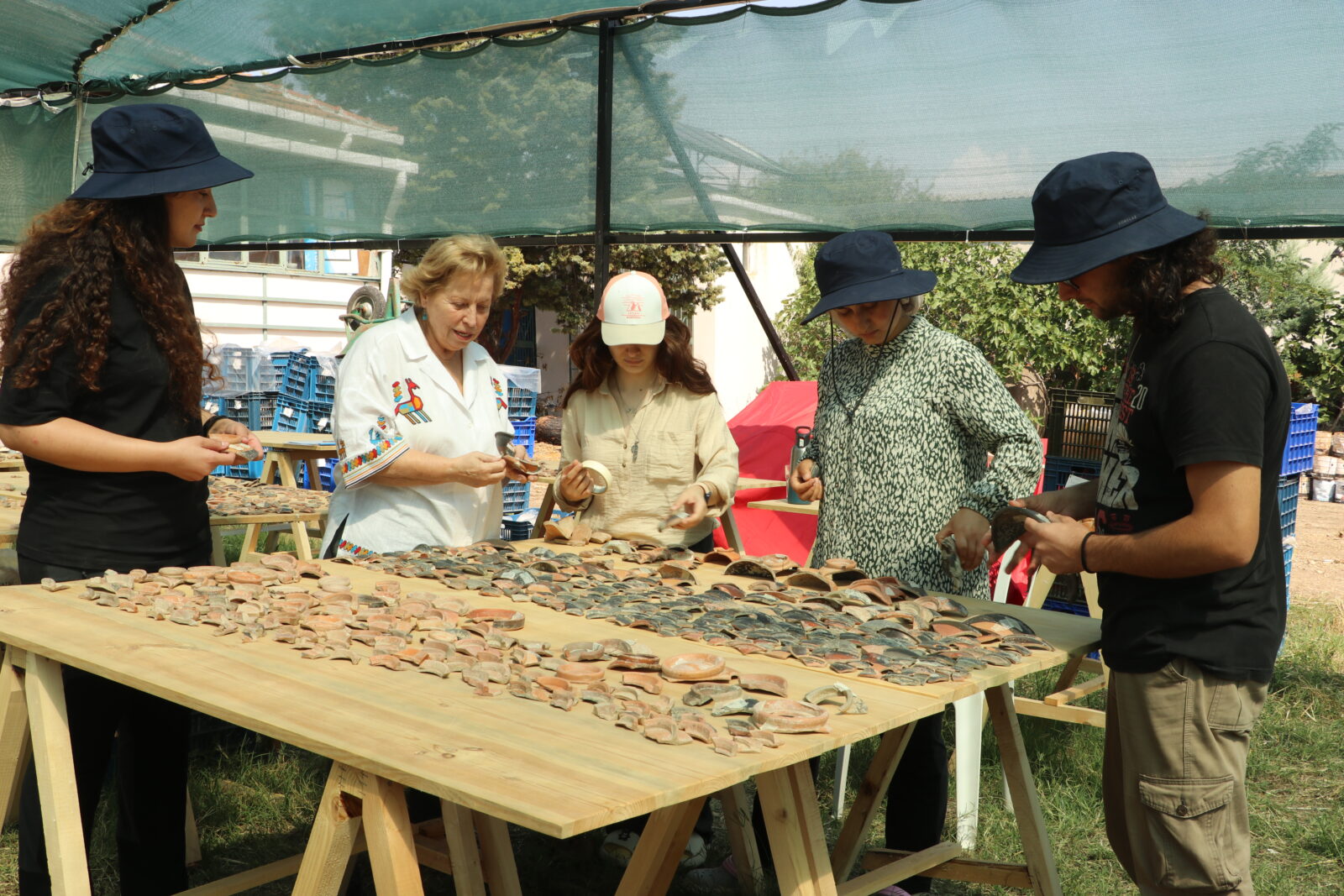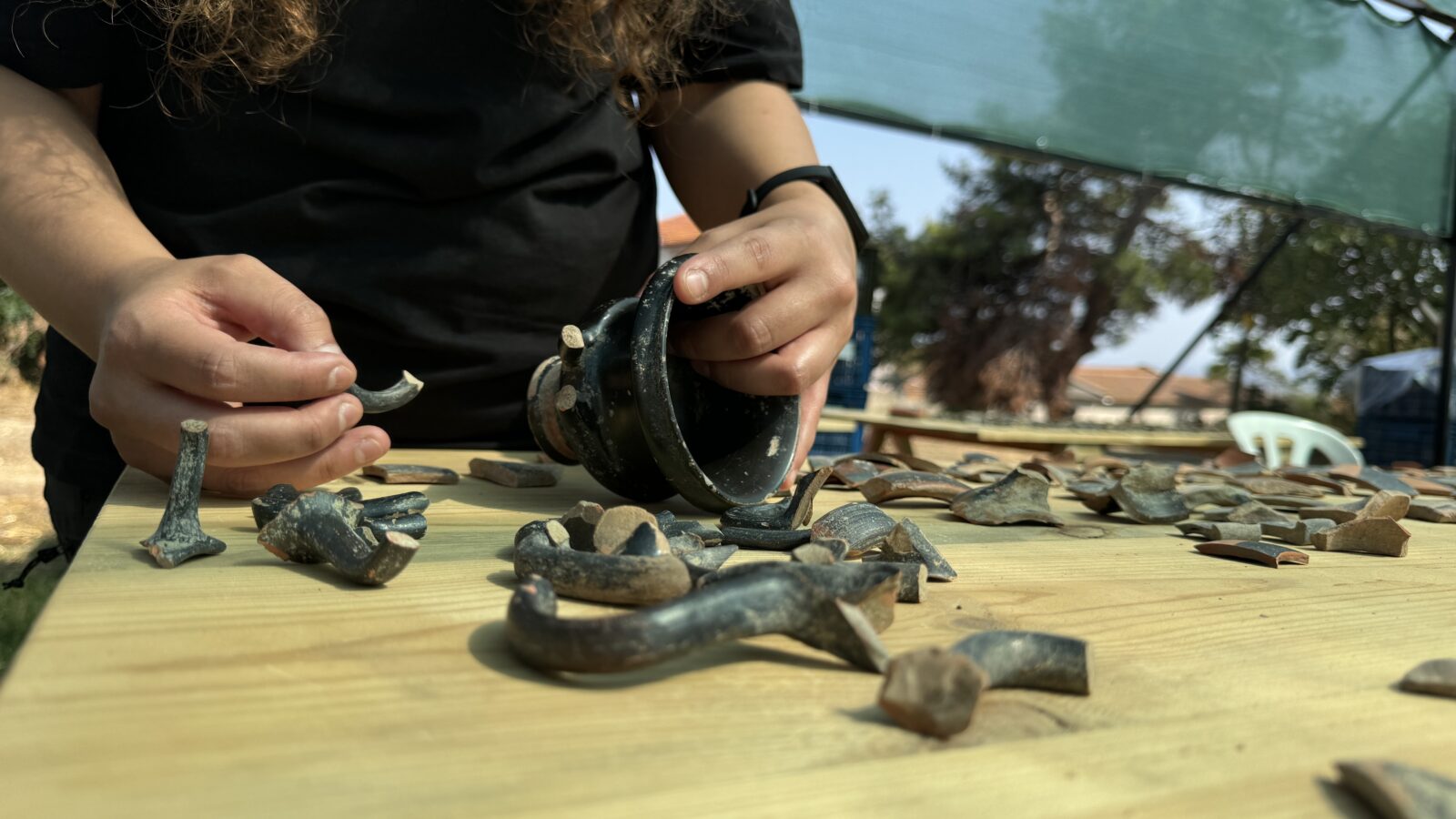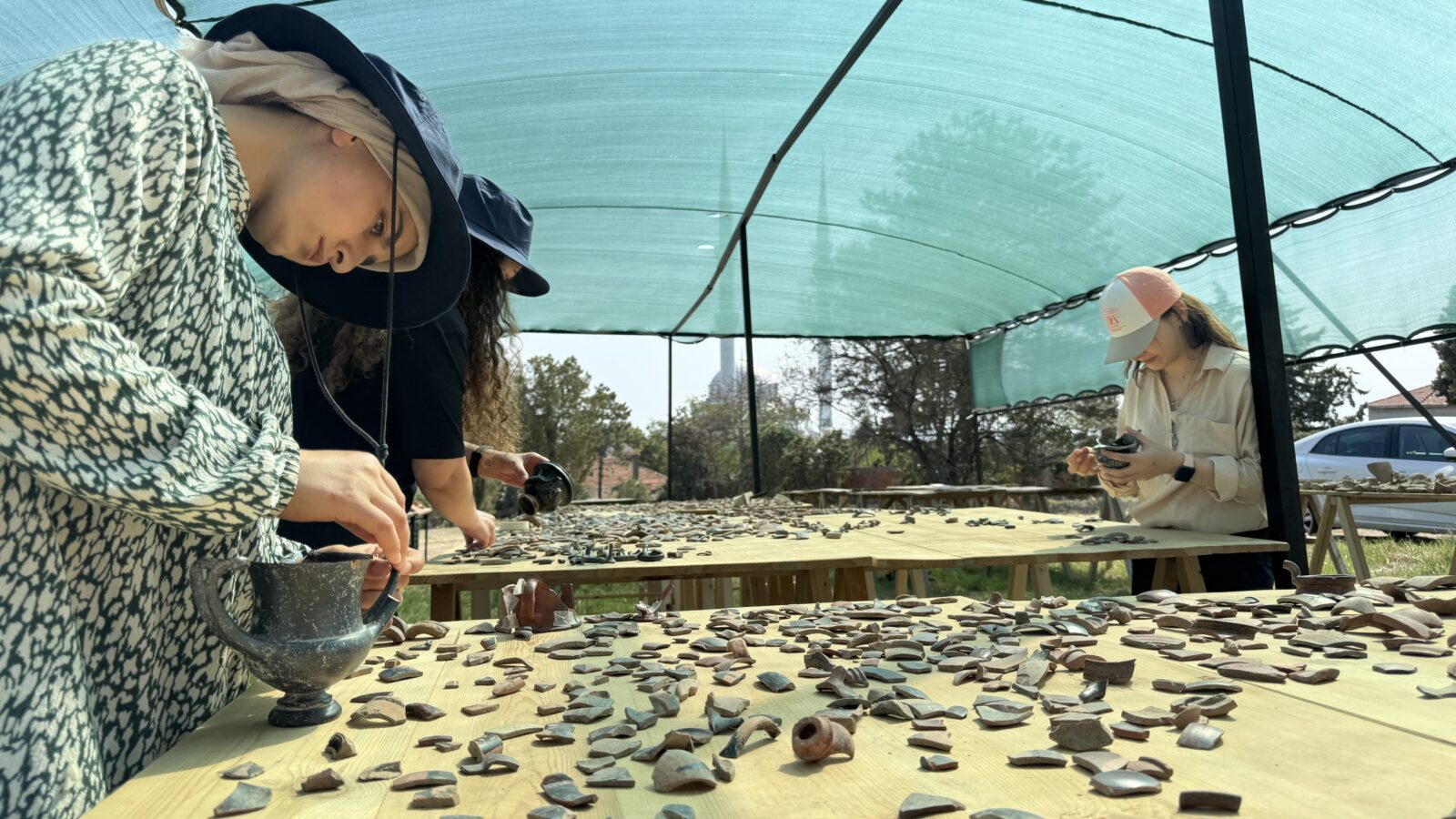
Archaeological excavations in the Heraion-Teikhos (City of Hera) Ancient City, ongoing since 2000, have unearthed significant traces of the Thracians, an ancient civilization known for their influence on world cultural history.
Over the past two decades, archaeologists have discovered statues of the mother goddess and the god of health, a burial mound (known as a tumulus), a medicinal furnace and various ancient coins.
The excavation team continues to work on analyzing, restoring, and evaluating the unearthed artifacts in the site’s research house located in Karaevli.

This year’s findings include terracotta figurines of the mother goddess, adding to the evidence of the sacred spaces associated with Thracian beliefs. Professor Nese Atik, Dean of the Faculty of Arts, Design and Architecture at Istanbul Rumeli University and head of the Archaeological Research Office, emphasized the importance of the discoveries.
“The Thracians were a highly significant civilization, particularly in terms of their contribution to the cultural history of the world,” Atik said.
The Thracians once ruled a vast kingdom during the 4th century B.C., covering modern-day Thrace in Türkiye, as well as parts of Bulgaria, North Macedonia, Greece, and Romania.
“It was a colossal kingdom,” Atik noted, highlighting the expanse of the Thracian domain.
The Thracians’ legacy, while documented by external civilizations such as the Greeks and Romans, reveals a wealthy society with sophisticated craftsmanship.
“They lived in great wealth, leaving behind incredible silver and gold vessels,” Atik explained. However, their lack of written records means much of what we know comes from ancient writers, particularly those of Greek, Roman, and Byzantine origin.
Thracian society, according to Atik, was patriarchal and proud, with a culture centered around conquests. “They lived on horseback and had unique religious customs,” she added.

One of the most fascinating aspects of the Thracian culture is their belief in immortality. Excavations in Heraion-Teikhos have revealed sacred spaces dedicated to the mother goddess and the god of health, reinforcing the idea that the Thracians had a strong connection to their deities.
The mother goddess was believed to grant immortality by symbolically marrying the Thracian king – who then bestowed immortality upon the aristocracy.
Atik explained the Thracians' belief in human sacrifices, a practice linked to their immortality cult.
"In one ritual, a Thracian volunteer would stand in place while three warriors threw spears at them. If the person survived, they were considered having bad spirits, but if they died, they achieved immortality."
Another startling belief involved the sacrifice of widows. “Thracian nobles often had between four and 30 wives. When a nobleman died, one chosen wife was sacrificed at his grave by having her throat slit,” Atik said.
“Far from being a source of sorrow, this was considered an honor, as it was believed the sacrificed woman would gain immortality.”

The discoveries also shed light on the advanced medical practices of the Thracians. Excavations have revealed medicinal workshops, bronze and terracotta storage vessels, and bone measuring spoons used for medicine.
According to Atik, the discovery of medicinal pools – previously only known through ancient texts – further underscores the Thracians' sophisticated approach to healthcare.
“These pools were used in the preparation of medicinal products. Water would reach ankle height and flow through, while sea snails with spiny shells were separated and their meat used for other medicinal purposes. The shells were melted in the nearby furnace to create healing materials,” Atik explained.
With each new discovery, the ancient Thracian kingdom in Türkiye's Heraion-Teikhos provides invaluable insights into a culture once shrouded in mystery.
The ongoing excavations offer a rare glimpse into the religious, social, and medical practices of the Thracians, solidifying their status as a remarkable civilization in ancient history.